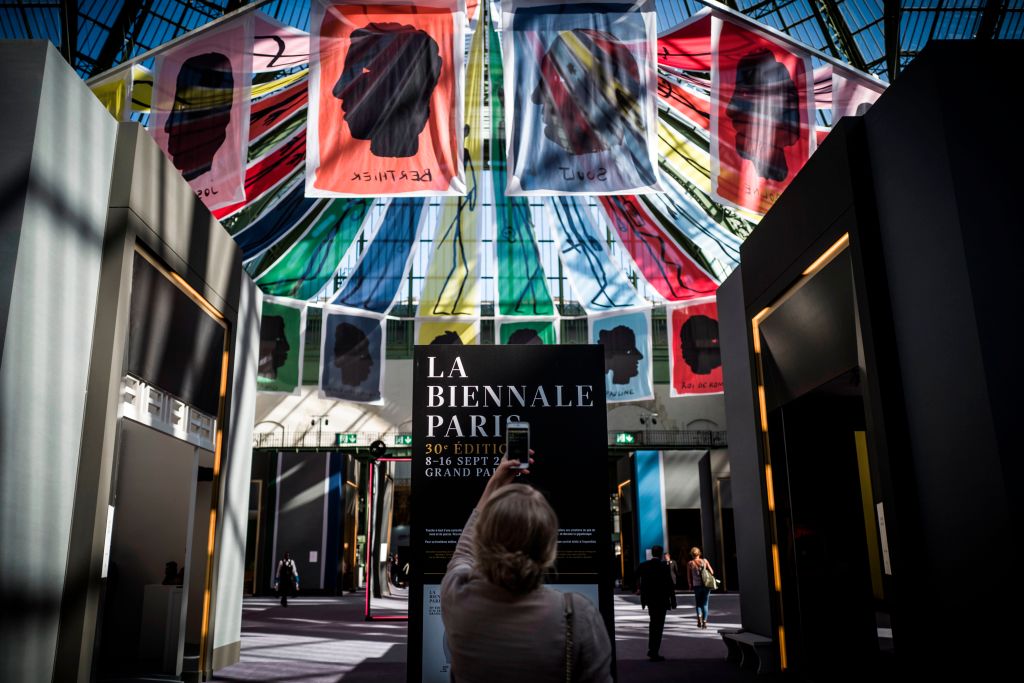
The vetting process for a prestigious antiques fair in Paris is going on without its two committee presidents after one of them withdrew from his post.
Frédéric Castaing stepped down following a disagreement over the decision to admit several controversial exhibitors, which are subject to criminal investigations. As a result of Castaing’s departure, fellow co-president Michel Maket can no longer preside over the vetting process either.
The Biennale Paris, formerly the Biennale des Antiquaires, is due to open in just two months, from September 13 through 17 at the Grand Palais. (Despite its name, the fair is held annually rather than biannually.)
Maket, who is president of the French Union of Professional Experts in Works of Art and Collectibles, has jointly presided over the fair’s vetting committee with Castaing, who chairs the National Company of Experts, since 2017.
Maket told artnet News that it was not his decision to withdraw from the post. “The [National Company of Experts] and Frédéric Castaing disagreed with the admission of certain exhibitors, so they decided to withdraw from this co-presidency,” he says, “and you can’t have a co-presidency on your own.”
One of the galleries in question is reportedly the Geneva- and New York-based Phoenix Ancient Art, whose owners are being investigated in Europe for alleged money laundering and antiques trafficking from Syria, The Art Newspaper reports. (A spokesman for Phoenix says there is no truth to these allegations, and that a visit to the gallery in Brussels from authorities was related only to a third party.) The gallery was reportedly excluded from TEFAF New York as well as the BRAFA art fair, according to the French paper Le Journal des Arts. (Phoenix’s spokesman says the gallery is unaware of any exclusion from these fairs, both of which it has participated in repeatedly.)
The other gallery reportedly at issue is run by Parisian bookseller Jean-Claude Vrain, who has been charged with providing manuscripts to Aristophil, a company that is the alleged orchestrator of a $950 million Ponzi scheme. A third dealer, Pablo Touchaleume, is also reportedly subject to a dispute over his father’s links to allegedly forged Jean Prouvé furniture.
“It’s just a matter of ethics. It is the straw that breaks the camel’s back,” a source close to Castaing told the French paper Le Figaro. “An organization as serious as the [National Company of Experts] cannot guarantee an event that is no longer under control and turn a blind eye to exhibitors who have been indicted, even if the presumption of innocence remains.”
“I respect the position of the [National Company of Experts] and Frédéric Castaing,” Maket tells artnet News, “but I don’t completely share it in the name of the French Union of Professional Experts in Works of Art and Collectibles because the majority of the exhibitors are absolutely respectable and honest people. Is penalizing them all like this at the last minute really serious and responsible?”
Maket says that the bulk of the vetting has already been completed. All that remains is a final vetting, where appeals will be considered by some 100 experts, on the eve of the fair’s vernissage in September, which will be unaffected by the presidents’ absence.
The art fair already has a troubled past. In 2016, several leading exhibitors withdrew in the wake of a scandal over forged royal furniture. The organization has since been restructured by the National Union of Antique Dealers, and is now under the auspices of a new chairman, Mathias Ary Jan.
Maket emphasizes that unlike what has been reported elsewhere, he is not “slamming the door” on the fair. Rather, he has chosen to remain on the vetting team as an individual. Many of the other consultants invited to participate in the vetting are also a part of the French Union of Professional Experts in Works of Art and Collectibles. “I encouraged our members to participate, out of respect for the majority of the exhibitors, and for the art market, and for the visitors,” Maket says. “I’m not punishing all the exhibitors because there are two people, two or three exhibitors, who raise questions. And my choice is to go in a positive direction rather than in a negative one.”
For his part, Castaing framed his departure as a personal decision. As for the other members of the National Company of Experts, of which there are around 40 chosen to consult on the fair, Maket says that Castaing told him that they are free to do as they wish, although there have been several media reports that it is expected they will boycott.